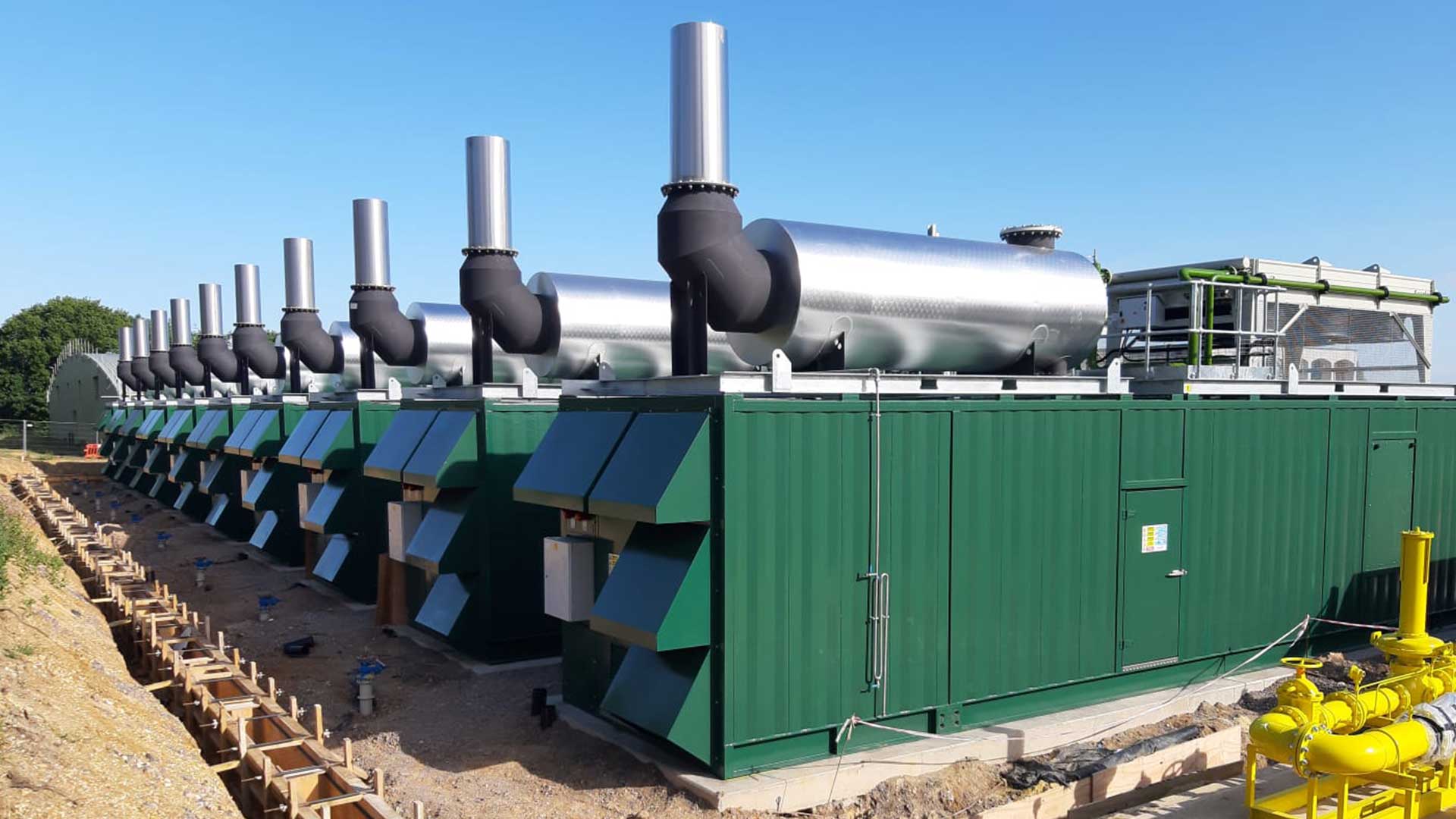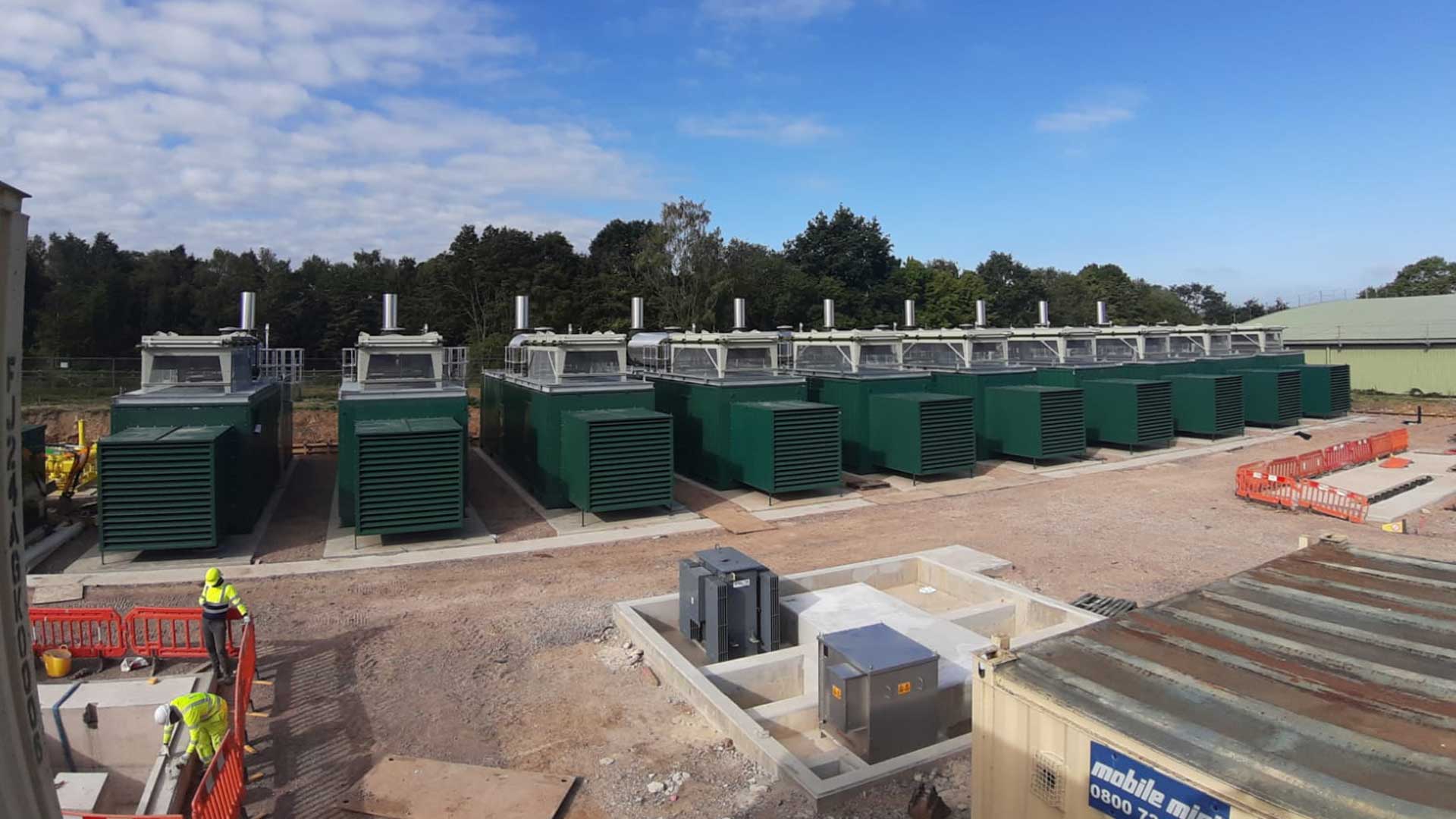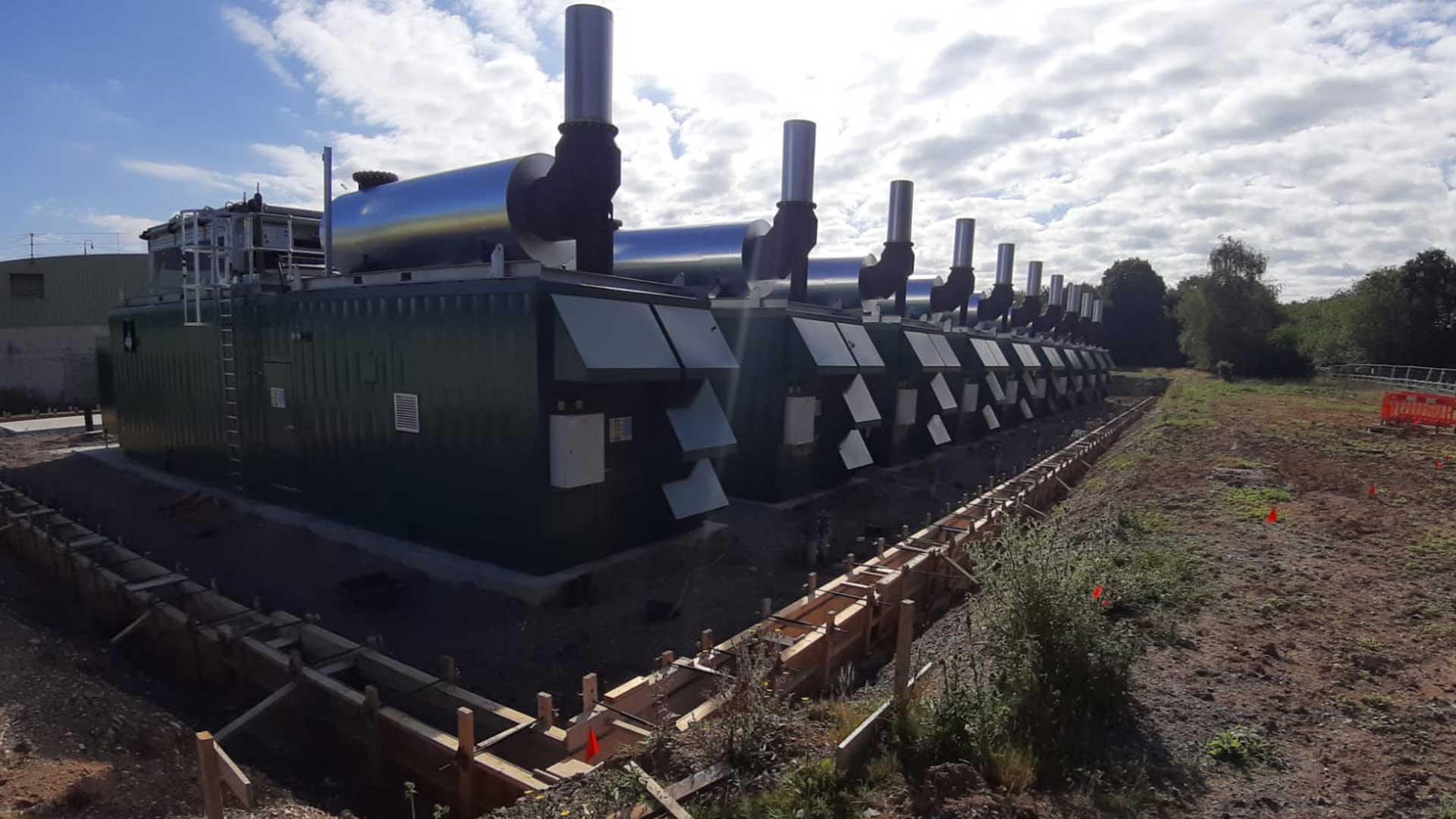Edina delivers full EPC contract to Welsh Power’s peaking plant portfolio across 14 sites based in the UK.




Edina Group delivers full EPC contract to Welsh Power’s peaking plant portfolio across 14 sites based in the UK.
The power demand fluctuations across the country has always varied across the day, with far less power being consumed at 5am when compared to 5pm. Likewise, the Winter months requires more power than the Summer months. Although this variation has been reasonably predictable, it has become more difficult due to the growth in renewable energy sources such as Wind and Solar.
Major power stations tend to be baseload producers and are slow to respond to changes in the required power output whether up or down.
This demand variation and slowness to respond has led to increased grid stress and imbalance in supply and demand.
To reduce this imbalance, the National Grid launched balancing services Short Term Operating Reserve (STOR), Demand Side Balancing Reserve (DSBR), and the Capacity mechanism.
Due to the imbalance predicted by the growth of renewables, it is anticipated that the yearly operation of STOR contracts will need to increase, which has led to energy providers opting to replace diesel engines with gas fuelled power plants.
Gas engine technology offers greener environmental credentials, reduced operational costs, and cleaner and cheaper fuel.
In order to cater for the added demand and reduce grid connection stress, Welsh Power’s gas power plants offer a cleaner and energy efficient alternative to diesel power plants.
Welsh Power awarded Edina the full EPC contract due to Edina’s complete understanding, and capability in delivering Welsh Power’s technical and strategic requirement.
Edina provided feasibility studies, financial and energy modelling to maximise the projects objectives and energy performance.
Under the full EPC contract, Edina supplied, installed and maintains the MWM TCG 2020 V20 engines, all of which were containerised at its manufacturing facility in Lisburn, Northern Ireland.
Edina also undertook the design of the building work housing the containerised generators, Project Management and Commissioning.
In managing these electricity generating peaking plants, a number of challenges were addressed. Prior to work commencing onsite any conditions imposed under the planning consent were discharged.
Typical conditions included, the submission and approval by the Planning Authority of drainage design, external lighting design, noise levels and ground stabilisation/foundation design. Working with planning consultant Nathaniel Litchfield and Partners, Edina provided information and assistance to expedite the process.
Conditions ‘in the ground’ posed the greatest challenges. It is not unusual to encounter underground services, either not in the location shown on record drawings, or not on the drawings at all – contaminated ground, unrecorded mass concrete foundations etc. To mitigate the impact of such factors on project delivery timescales, Edina undertook trial excavations and investigations to establish ground conditions and adapt methods and programme of works accordingly.
The achievements in the STOR and Peak Power projects included the ability of the control system to use the entire site not just for STOR and Peak Power applications, but for other applications too.
The sites control system was cleverly designed to make sure that demands from various organisations like National Grid and Centrica could demand power generation and the system decides who has the priority to demand power. This ensures the equipment is effectively utilised and the investment gives better returns.
The gensets are also provided with heaters to improve start up times at short notice.
The electricity consumed from the grid usually emits an average of 0.541kg CO2 per kWh, but the genset supplied for the Welsh Power projects emit 0.3059 kg CO2 per kWh, reducing the average carbon emissions of power consumed from the National Grid.
These power stations provide security and stability to the grid and can be demanded during peak hours or during high electrical demand. These power stations have a quick ramp up time to meet the demand of the grid within 7 minutes.
A boiler based engine block heating system was developed to minimise the parasitic load of the station when on standby, helping the gensets to ramp up to 100% load within the specified time.
A large number of the Welsh Power STOR projects were designed and built in keeping with the aesthetic of the surrounding area. Facilities housing the engines were painted green and trees have been planted around the buildings parameter to minimise environmental impact of the power plants.
The STOR and Peak Power portfolio across Welsh Power helps the National Grid keep supply and demand in balance and provides UK infrastructure mission critical power in areas of the UK that are prone to risk of loss of power supply and with a high population density.
More than 10% of the UK’s electricity is generated by carbon intensive peaking plants, which is used to match supply and demand when required. By using natural gas generators, Welsh Power’s STOR and Peak Power management effectively reduces the need for peaking plants and helps support the growth of renewable energy (solar/wind) generation, offering essential balancing at times when weather conditions prevent output.
The overall carbon emissions of the National Grid system will reduce as more renewable generation and balancing services are connected to it.
This will benefit all companies that report their carbon emissions, since Defra’s (Department for Environment, Food & Rural Affairs) grid-supplied electricity conversion factor takes this into account.
These peaking plants power plants will safeguard security of power supply caused by the imbalance of renewable energy exported into the electricity grid.
Supplying directly to the electricity grid for domestic, public and/or commercial usage, the electricity generating peaking plants maintain a dependable energy service to allow the consumer to access energy wherever, whenever.

Client:
Welsh Power
Location:
UK wide
Capacity:
234MWe
Operational:
2015 - 2017
Manufacturer:
MWM
Packager:
Edina
Engine Type:
TCG 2020 V20
Primary Fuel:
Natural Gas




Copyright © Edina. All Rights Reserved.